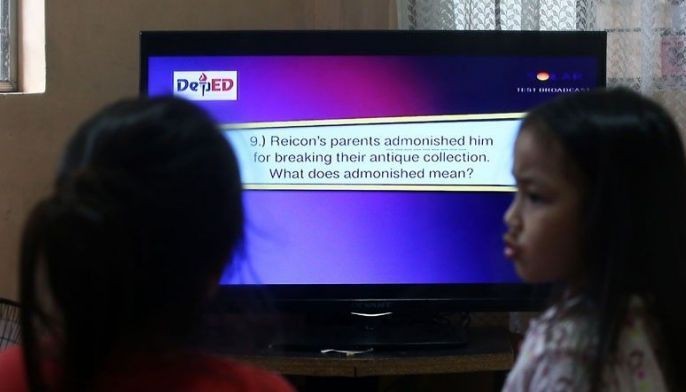MANILA, Philippines — The Alliance of Concerned Teachers called on the Department of Education on Wednesday to move away from its "apparent instant prescription" of blended learning to solve the country’s education woes, including recent reports of students and teachers’ difficulty attending class in the summer months.
"Of late, blended learning has been the DepEd’s go-to solution for power outage, oil spill, and intolerable summer heat, even calling the modality an innovative approach to classroom and teacher shortage," ACT chairperson Vladimir Quetua said.
Related Stories
"While it can be useful as a quick and temporary response when in-person classes are difficult to hold due to unforeseen circumstances, it should not be abused as the perennial solution, especially to problems caused by lack of foresight, poor planning and inadequate budget allocation," Quetua added.
Quetua’s remarks follow DepEd’s reminder to school principals that they can revert to the blended learning modality to protect students’ and teachers’ health from the extreme heat felt in classrooms.
In 2022, DepEd also suggested that schools implement the blended learning mode, along with other strategies like shifting schedules, to address the limited number of school facilities that can cater to the growing student population.
DepEd required all schools to shift to full face-to-face classes in November after two years of distance learning with limited exceptions. At least 28 million students enrolled for the school year 2022-2023.
RELATED: DepEd data shows imminent classroom shortages with face-to-face classes
Quetua, however, said that distance learning during the pandemic emphasized the digital divide or limited access to devices among students, which still remain "unresolved."
"Distance learning problems hound our teachers and learners still as they remain unresolved after two years of its implementation—inadequacy of modules, lack of gadgets and internet support, and learning loss," Quetua said.
In 2020, an initial survey by DepEd showed that more than 8.8 million parents preferred using printed modules to teach their children, while only 3.3 million chose online learning.
RELATED: Tech woes among top concerns for distance learning | Philstar.com
Funding and political will needed to address shortages
The group also said that the government needs to act on shortages in education, including the lack of classroom facilities, which would require "full fiscal support" and "staunch political will."
Quetua again repeated ACT’s call to revert to the old academic calendar, which schedules students’ academic breaks during the summer months of April and May.
DepEd spokesperson Michael Poa has said that the department is still studying proposals to shift to the old academic calendar, especially with regard to concerns in previous years about conducting classes during the typhoon season from June to August.
For years, DepEd resisted synchronizing its calendar with the new school calendar in higher education, which the Commission on Higher Education recommended for state universities in 2019 to cover the same period as the government’s fiscal year.
However, DepEd had to delay its class opening in 2020 from June to October to make way for distance learning preparations during the COVID-19 pandemic. Since then, it has scheduled class openings in August.
DepEd’s Basic Education Development Plan 2030, which is its first long-term roadmap, mentioned the need to prioritize investments in information and communications technology and "sustain schools’ experience with blended learning and the use of online modality." — Cristina Chi


